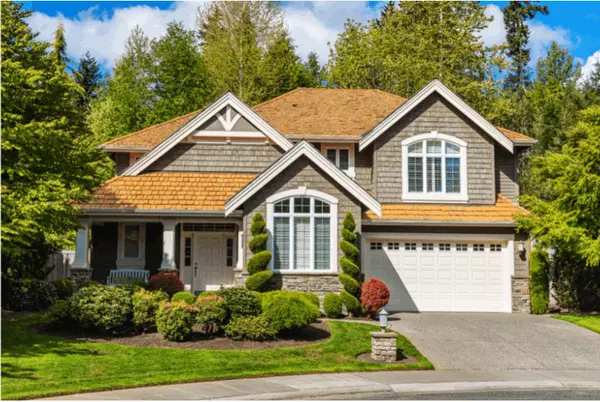
Am I extra or are you basic?
In the ever-evolving world of real estate, the question often arises: are you a discerning buyer with an eye for luxury, or do you prefer a more minimalist, straightforward lifestyle? The truth is, there's no right or wrong answer—only what suits your personal tastes and needs. For buyers who revel in the finer things in life, luxury properties offer an array of amenities that elevate everyday living. Imagine waking up to panoramic views from a high-rise penthouse, enjoying state-of-the-art appliances in a gourmet kitchen, or relaxing in a spa-like bathroom. These homes are designed with attention to detail and often come with exclusive perks like concierge services, private gyms, and rooftop pools. For these buyers, the home is not just a place to live but a sanctuary that offers an unparalleled lifestyle. On the flip side, some buyers lean towards simplicity and functionality. They seek homes that meet their basic needs without the frills. This doesn’t mean compromising on quality; rather, it’s about valuing efficiency and practicality over opulence. A cozy bungalow with a well-designed layout can offer just as much comfort and satisfaction as a sprawling estate. For these individuals, less truly is more. The beauty of the real estate market is its diversity. Whether you’re looking for an extravagant mansion or a modest starter home, there’s something out there for everyone. The key is to identify what makes you feel most at home. Are you drawn to grand architectural details and lavish interiors, or do you find peace in simplicity and minimalism? Ultimately, your choice reflects your lifestyle and personal preferences. So whether you're "extra" or "basic," the perfect home is one that aligns with who you are and how you wish to live your life. Happy house hunting!

Navigating Inflation
**Market Update** As inflation continues to shape our economic landscape, it's crucial for both seasoned investors and prospective homebuyers to adapt their strategies accordingly. The real estate market, while typically a safe haven during inflationary periods, is not insulated from economic shifts. Higher interest rates, driven by inflation, mean that securing a mortgage can become more expensive. This dynamic encourages cash buyers and may even spur a rise in rental demand as mortgages remain out of reach for some. Current trends show that property values in desirable areas are likely to remain stable or even appreciate, as the demand for quality living spaces remains unsatiated. However, properties in less sought-after locations may experience slower price growth. As an investor or homebuyer, focusing on regions with robust economic activities, solid employment rates, and good schools can help mitigate inflationary pressures. **Lifestyle** Navigating inflation isn't just about financial decisions; it's also about lifestyle adjustments. When managing a real estate portfolio or considering a new home purchase, it's important to forecast living expenses that align with rising costs. Simple modifications, such as investing in energy-efficient appliances and incorporating sustainable living practices, can reduce utility bills and protect against future inflation spikes. For homeowners, this may be a good time to consider refinancing if you can lock in a lower interest rate before further hikes. Additionally, leveraging home equity for renovations that boost property value can provide a buffer against inflation. Renters, on the other hand, might look into negotiating longer-term leases to lock in current rates, potentially safeguarding themselves from rapid rental increases. Moreover, flexible living arrangements and remote work options open up possibilities of relocating to more affordable areas without compromising on lifestyle quality. In conclusion, managing inflation in today's economy requires a balanced approach of market awareness and lifestyle adjustments. By staying informed and flexible, both investors and homeowners can navigate these uncertain times with confidence.

New Construction or Previously Owned
When deciding between new construction and previously owned homes, buyers must weigh several factors to make an informed choice. Each option offers unique advantages that cater to varied preferences and lifestyles. New construction homes come with the allure of modern amenities, contemporary designs, and energy-efficient features. Buyers are often drawn to the customizable aspects of new builds, allowing them to select finishes, fixtures, and floor plans that align with their tastes. Additionally, new construction tends to have fewer maintenance issues, reducing the likelihood of unexpected repair costs. The latest safety standards and building codes also offer peace of mind, knowing the home is up-to-date with the most current regulations. However, new construction might come with certain downsides. These homes are often located in developing neighborhoods that might lack the mature landscaping and community feel of established areas. There can also be higher upfront costs, and the waiting time for completion can add to the impatience of eager buyers. On the other hand, previously owned homes are a staple of the real estate market, offering rich history and established charm. Older homes are typically situated in well-developed neighborhoods with mature trees, longstanding schools, and a deeper sense of community. In many cases, the character and architectural details of older homes are hard to replicate in new construction. Buyers may also find that previously owned homes are priced more competitively, sometimes with the added benefit of motivated sellers who are eager to negotiate. However, selecting a previously owned home doesn’t come without its challenges. These homes may require more immediate maintenance or renovations to meet modern living standards. There is also the potential for hidden issues, such as outdated wiring or plumbing that could necessitate costly repairs. Ultimately, the decision hinges on individual priorities. Those who want a turnkey property with the latest advancements may lean towards new construction. Conversely, buyers who appreciate established neighborhoods and unique architectural details might find a previously owned home more appealing. Whichever path you choose, it's essential to conduct thorough research and consider all aspects to make the best investment for your future.
Categories
Recent Posts









